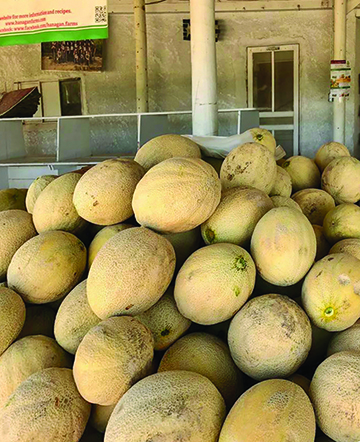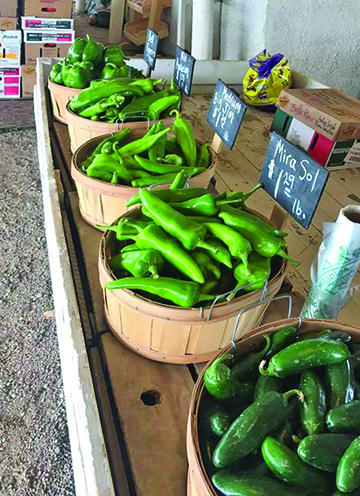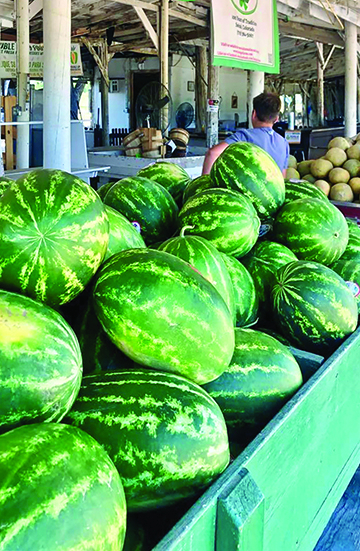by Jessica Hughes
The famous Rocky Ford melons have hit the shelves at big box grocery stores and local farmers markets across Colorado and this season is one of the sweetest yet. This season’s crop yielded some of the sweetest melons in years, particularly the cantaloupe.
Rocky Ford, Colo., lies in the Lower Arkansas River Valley, about an hour east of Pueblo. It is famous for producing some of the best cantaloupe, watermelon, and honeydew melons in the state and the world. The area is well-known for its melons due to its ideal climate, which includes large temperature swings — from hot and dry during the day, to much cooler evenings (which helps stimulate the sugars in the melon), the ideal soil composition, and right elevation.
“In my opinion, we produce the world’s best cantaloupe. The sweetest tasting and most flavorful,” says Eric Hanagan, owner of Hanagan Farms.
In fact, the region is so coveted that Rocky Ford Cantaloupes are trademarked. Just like how wine can’t be called Champagne if is produced outside the Champagne region of France, there is a defined area of where Rocky Ford melons can be grown and labeled as “Rocky Ford melons.”
Eric Hanagan, his wife, their children, and workers, who have been with them for nearly 30 years, run Hanagan Farms in Swink, just a few minutes east of Rocky Ford. The Centennial farm has been in business for generations growing produce in the Arkansas Valley for nearly 115 years. While their mainstay is now Rocky Ford cantaloupe, melons, and watermelons, they also produce vegetables such as peppers, pumpkins, and tomatoes.
“We have diversified over the years,” says Hanagan. “As the industry changes, so do we. In agriculture, if you aren’t changing, you are dying,” Hanagan expresses. For example, the introduction of drip irrigation technology at his farm has yielded high-producing crops over the years and helped to save 70% of their irrigation water usage. In fact, all his melons are raised on drip irrigation.
Despite a near 20-year drought the eastern plains and a lot of the country is experiencing, this doesn’t affect their melon crop much. “We don’t really need a lot of rain. In fact, we like it hot and dry but we need adequate snowfall in the winter so we can irrigate with mountain run-off from the Arkansas River,” says Hanagan. No hail is nice too!
So, where can you buy Rocky Ford melons? While some, like Hanagan Farms, sell mostly retail, direct to consumer at their farm, a good portion are packed and shipped by Hirakata Farms to grocery stores like King Soopers.
Hanagan also suggests getting to know your farmer by visiting local farmers markets. “When you get to know your farmer, you get to know your food,” says Hanagan. “We wouldn’t sell anything we wouldn’t serve to our own family.” There are several farmers markets in the Rocky Ford region in which to buy fresh melons, along with plenty of roadside stands where the farmers are selling directly to their customers.
Despite the fact there are only five or six farmers that actually grow melons in the region, albeit very large farms, the future looks bright with generational possibilities on the horizon to keep the farms going. “We are still cranking out more melons than ever,” says Hanagan.
To learn more about Rocky Ford melons and harvest season visit rocky-ford-grow ers-association.mandccommunications.com. And to stay updated with happenings at Hanagan Farms, follow them on Facebook @hanaganfarm
All images are provided by Hanagan Farms via Hanagan Farms Facebook



